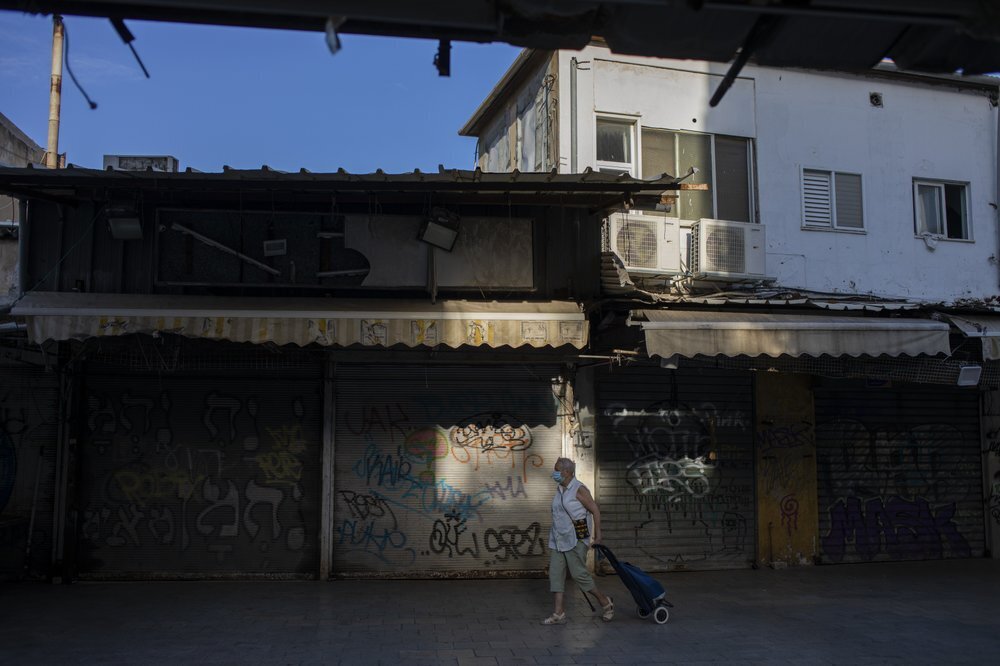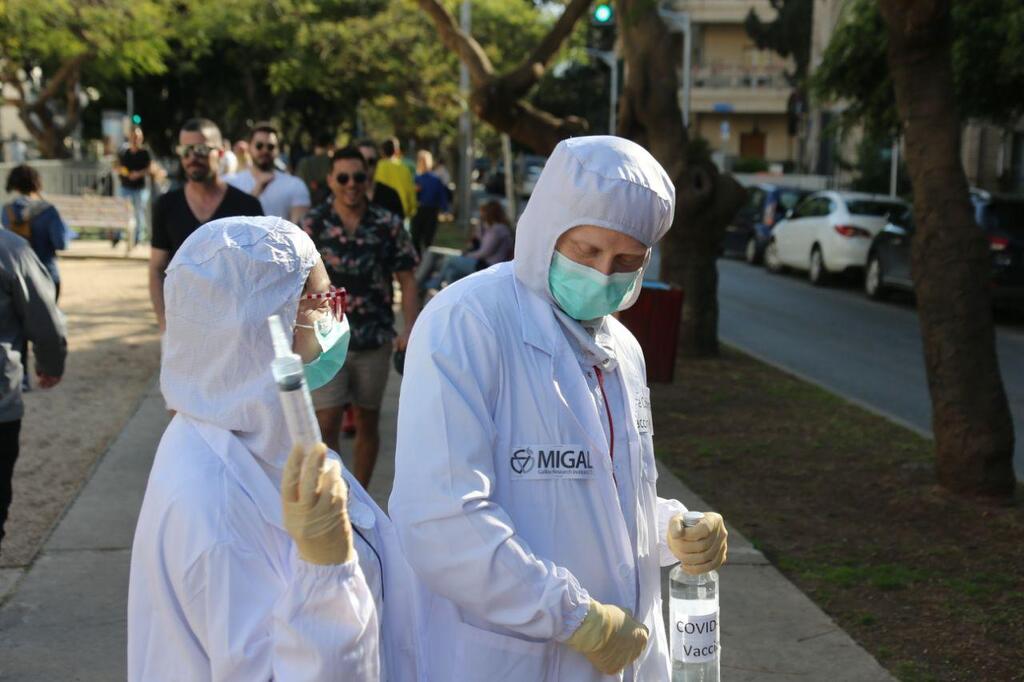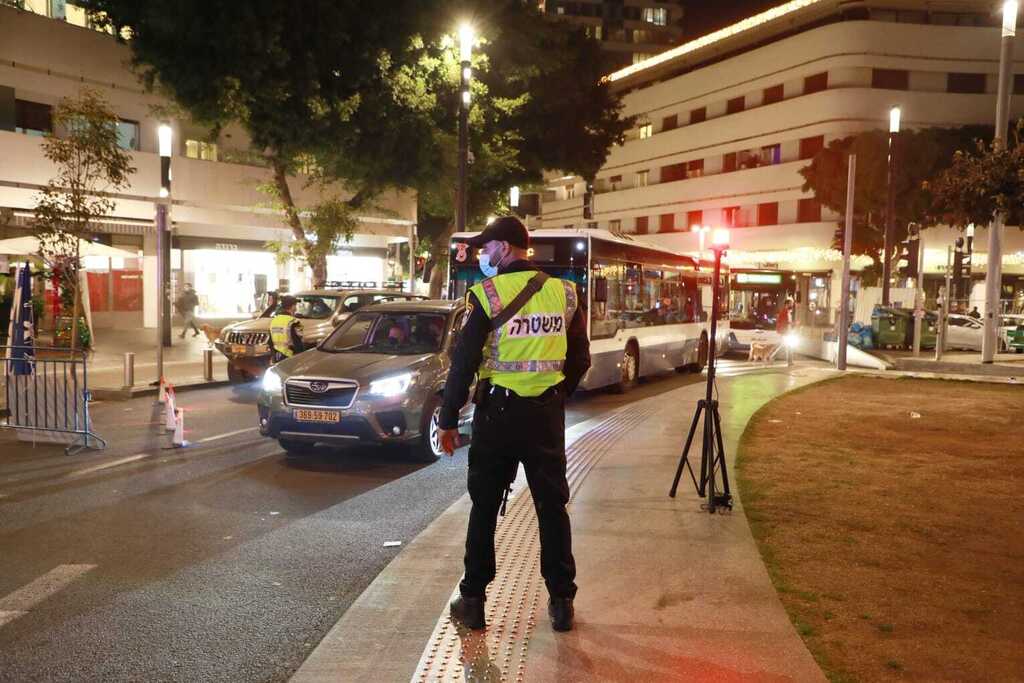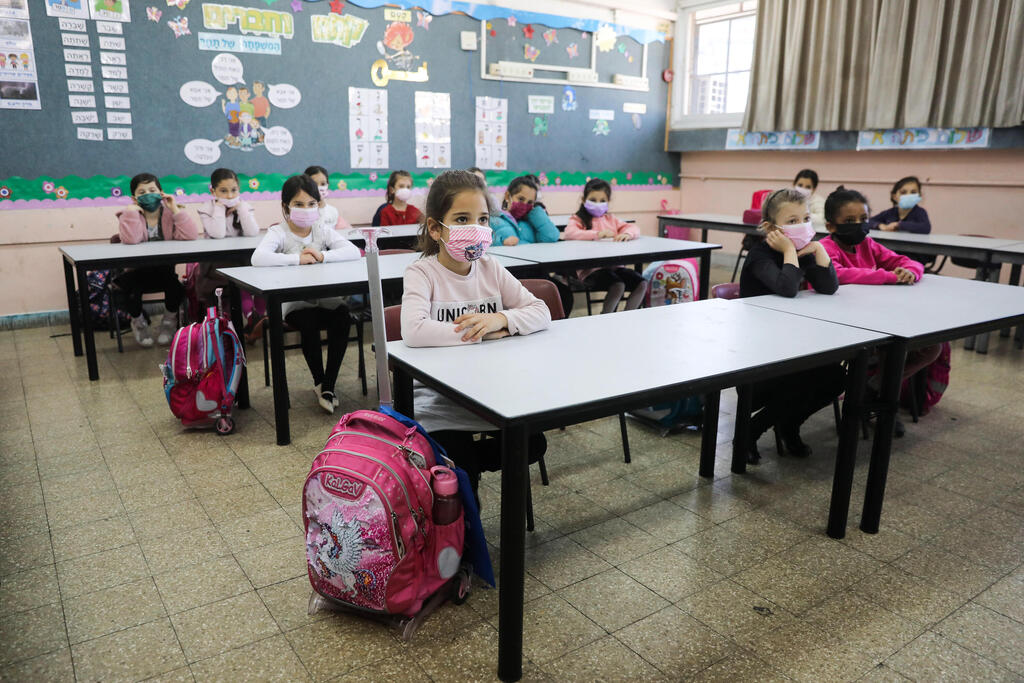For a holiday that extols living together harmoniously, Israelis might be more divided than ever.
Purim, which started the night of February 25 and extends this year through Sunday in Jerusalem and other Israeli cities, celebrates the protection of the Jewish people from the evil Haman, who plotted to kill the entire community.
Purim also marks the one-year anniversary on the Jewish calendar of the COVID-19 pandemic, where the coronavirus, instead of a young Persian upstart, is the mortal threat. And, now, Israelis possibly are a threat to each other.
Some members of the ultra-Orthodox Haredi community have flouted health regulations due to the coronavirus, holding funerals and weddings with thousands of attendees, often not wearing masks.
Ultra-Orthodox patients make up a disproportionate share of Israel’s cases of the coronavirus, and many Israelis attribute the three national lockdowns in the last year to their noncompliance with the rules.
As a result, tensions between the Haredi community and the rest of Israel’s Jewish population have reached a boiling point.
Despite the divisions, Yosef Ote, the community rabbi of the Orthodox Hazvi Yisrael Synagogue in Jerusalem, says that four mitzvot, or deeds, affiliated with Purim can help Israelis connect.
“The entire chag [holiday] of Purim, in my opinion, is all about unity and that’s why the four mitzvot are all about caring for one another,” he says.
This year the Purim holiday lasts for three days in Jerusalem and some other Israeli cities since it began on Thursday night; the Jewish Sabbath causes some parts of the holiday to be kicked over to Sunday.
Ote explains that Purim starts with the reading of the Book of Esther, the first mitzvah, on Thursday and that Jews give charity to the poor, the second mitzvah, through Friday up until the Jewish Sabbath, or Shabbat.
Shabbat is celebrated as usual with the exception of reciting the al-Hanissim prayer about miracles. On Sunday, gifts of food are exchanged between friends and neighbors, which is the third mitzvah. The fourth mitzvah is the holiday meal.
“In a way, we are celebrating Purim three days, and we need that this year with everything that is going on with corona,” Ote says.
He hopes that the holiday will bridge the extensive differences among Israelis, that have become even larger due to the pandemic.
“If we truly in our hearts try to never speak ill of people unless they’re doing something terribly wrong, like putting other people’s lives at risk, but other things that do not have to do with life, just maybe a difference of opinion, [then] we should agree to disagree and not cause hatred,” Ote says.
“And then we leave everything to Hashem [God]. If we truly do our part, then I think we will be a happier nation.”
Ote believes that coalescing can be kickstarted through mitzvot.
This year most Jews cannot go to a synagogue to fulfill the first mitzvah of reading the Book of Esther, called the Megillah, aloud in public. However, virtual celebrations also have brought unity that extends beyond Israel’s borders.
As part of the first Purim under the Abraham Accords, the normalization agreement signed between Israel and two Gulf states as well as two counties in North Africa, the Association of Gulf Jewish Communities will commemorate the beginning of the holiday Thursday night.
Dr. Sheikh Khalid bin Khalifa Al Khalifa, chairman of the board of trustees of the Bahrain-based King Hamad Global Center for Peaceful Coexistence, will be the featured speaker.
The second and third mitzvot, giving gifts to the poor and to friends, also serves as an equalizer in the community.
“Caring for the poor during Purim ensures all Jews can celebrate, not just those who have the ability to financially,” Ote says.
“Gifts are not just for the poor, but also to make sure our neighbors are together.”
The mitzvah to have the company, although not this year due to the pandemic allows people to “celebrate together and be happy and forget all the problems,” he said.
The number of Israelis who are in need of financial assistance has ballooned during the coronavirus crisis.
“It’s a tough situation right now in Israel. … The economy is still opening up, but there are still sectors of the economy that are closed and look like they are going to be mostly closed for the foreseeable future,” says Joseph Gitler, founder and chairman of Leket, a food rescue organization that fights hunger.
“Anyone who makes their living in anything connected to tourism and hospitality is really suffering … the unemployment figures, which before corona were at 4%, are now closer to 15%,” he adds.
4 View gallery


A woman wearing a face mask as a precautionary measure against the coronavirus walks past closed shops in Tel Aviv
(Photo: AP)
“In general, we are trying to expand our operation so that we can offer the same level of service to the newly poor, which we hope are the newly temporary poor. But for the time being, while there is some light at the end of the tunnel, it’s still a faint light,” says Gitler.
“At least until the end of 2021, demand is going to be greater than normal for supports,” he says.
As such, Leket has taken on an additional Purim campaign to specifically feed people during the holiday.
Despite the struggling economy, Laeticia Zohar, owner of the Petah Tikva-based The Little Bow Company, which delivers boutique gift boxes throughout Israel, says that she has not noticed a change in demand from last year.
“I don’t see more business, but I also don’t see less,” she says.
“People are still happy not to go to stores and some people don’t want to deliver it themselves.”
The fourth mitzvah, the holiday meal, is traditionally accompanied by alcohol.
“My opinion is based on Maimonides … to drink a little bit more than you usually do on Shabbat to care a little bit less about the regular everyday problems and be happy with your fellow Jew,” Ote says.
It is a mitzvah to be happy during the whole Hebrew month of Adar in which Purim takes place.
In trying times, Israelis are striving to find happiness where they can. For Israel’s youngsters, Purim marks a welcome coming together, in person, after weeks spent apart.
“We are happier this year because we feel that this is a victory. We didn’t give up,” says Hagit Iss, principal of TALI Harei Eilat School, which is located in the southern resort city and affiliated with the Reform movement, says of the school’s February 24 Purim celebrations.
The younger grades returned to school last week after the national lockdown kept them at home for over a month. The fifth and sixth grade returned to in-person classes on Sunday.
“The kids were so happy because they had been stuck at home for so long. It was like a carnival,” Iss says, referring to the outdoor festivities where children donned costumes, a holiday custom.
Still, the holiday required some adjustments during pandemic times.
“We didn’t exchange Mishloach Manot; we couldn’t share food like we do normally.” Iss says of the holiday gifts of food among neighbors and friends.
Instead, the children made gift bags for soldiers and for local hospital staff.
Natalie Halachmi, owner and manager of Natalie’s Nursery in Netanya, says that the infants and pre-schoolers were very happy this Purim, despite the pandemic difficulties.
“When they came back two weeks ago, one of the boys was still talking about Hanukkah,” she says. “We did a lot about Hanukkah, we missed Tu B’shvat, we missed Family Day, we missed everything,” she says.
“Usually, I start a month before Purim and I start talking about Megillat Esther [the Book of Esther] and we say Haman and all the kids go ‘boo,’” Halachmi says.
“We spent the last two weeks trying to settle everyone and get kids back on schedule, instead of getting ready for chag,” the Hebrew word for holiday.
“I have to say though, we pulled it off,” Halachmi says, adding that all the kids were full of smiles as they showed off their costumes.




